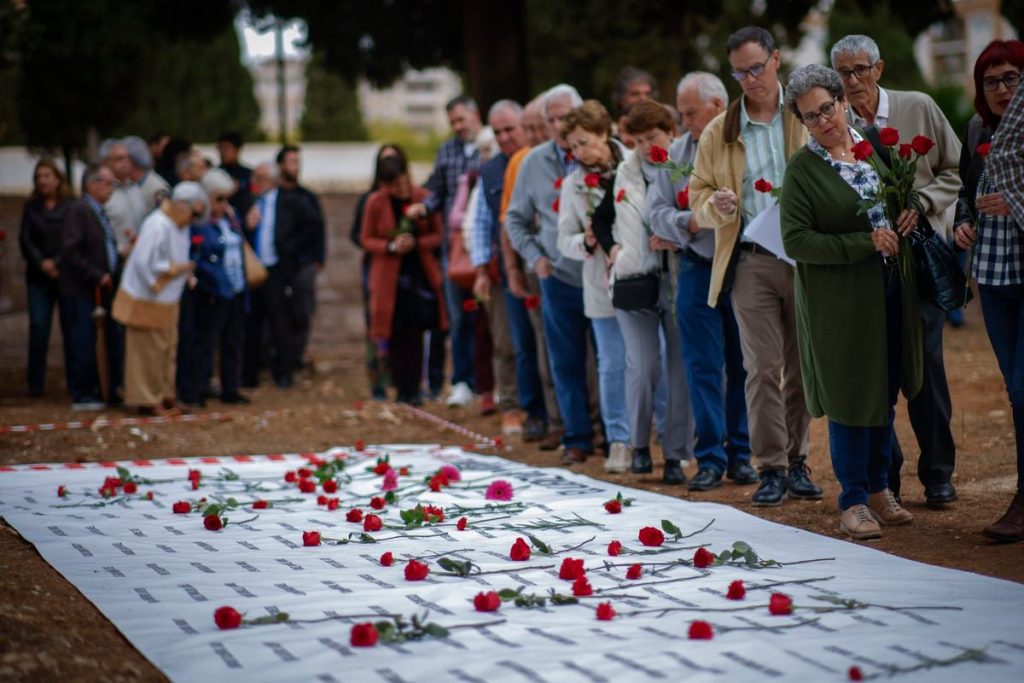The resistance against any progress in recognizing the forgotten victims of the Spanish Civil War and Francoism is a pillar of the Spanish far-right, whose ideology is a direct heir of the victors. In its current political form, Vox has become another aspect of the culture war that has been fueling its electoral success for years. What’s new is that their alliances with the PP after the autonomous elections of May 2023 have brought their revisionist rhetoric into the institutions. Aragón has repealed its historical memory law, while the governments of Castilla y León and Valencia are working on projects to replace theirs. In Cantabria, Balearic Islands, and Extremadura, there is a programmatic commitment between Feijóo and Abascal’s parties. The Ministry of Territorial Policy and Democratic Memory warned against these initiatives and announced that they will present a legal challenge to the Constitutional Court if necessary.
The autonomous memory laws were enacted to facilitate the implementation of the national law of 2007, which for the first time recognized the right to exhumate the thousands of bodies scattered in mass graves and give them a dignified burial. This put an end to a long-standing anomaly in Spain. However, the law left the effective search in the hands of the families. The government of Mariano Rajoy did not touch the law but showed no interest in helping the relatives, many of whom were already elderly. The new Democratic Memory Law of 2022 obliges the State at all levels to take charge of the search and exhumation. Vox now aims to repeal these laws one by one where it has the power to do so, i.e., where the PP allows it, and replace them with others using fallacious rhetoric. The extremist crusade is based on two false premises – that the law only recognizes the victims of one side when it actually refers to all victims of the Civil War, and that the legislation on memory attacks the spirit of the Transition. It is the far-right that relies on marginal arguments to relativize the dictatorship or equate it with the Second Republic, going against the vast historical consensus worldwide on the 20th century. In an Orwellian twist, the new laws proposed by Vox are called “concordance laws”.
The memory of the 1936 coup, the Civil War, the dictatorship, and the democratic Transition does not belong to a party or territory. There are few truly national issues that appeal to all Spaniards equally. In this sense, the national law remains in force, but some victims will have regional support while others won’t. The PP and Vox majorities have the right to repeal regional laws, but in doing so, they send a clear message: as far as they are concerned, the victims are on their own. Promoting revisionist laws is also humiliating for the victims. Vox has its own views on the Francoist dictatorship, climate change, feminism, or abortion. It is an unapologetically reactionary party, and it has made this very clear to the Spanish people. The PP, on the other hand, must resolve its contradictions – presenting itself to voters as a defender of constitutional consensus while giving political and institutional support to extremism.















